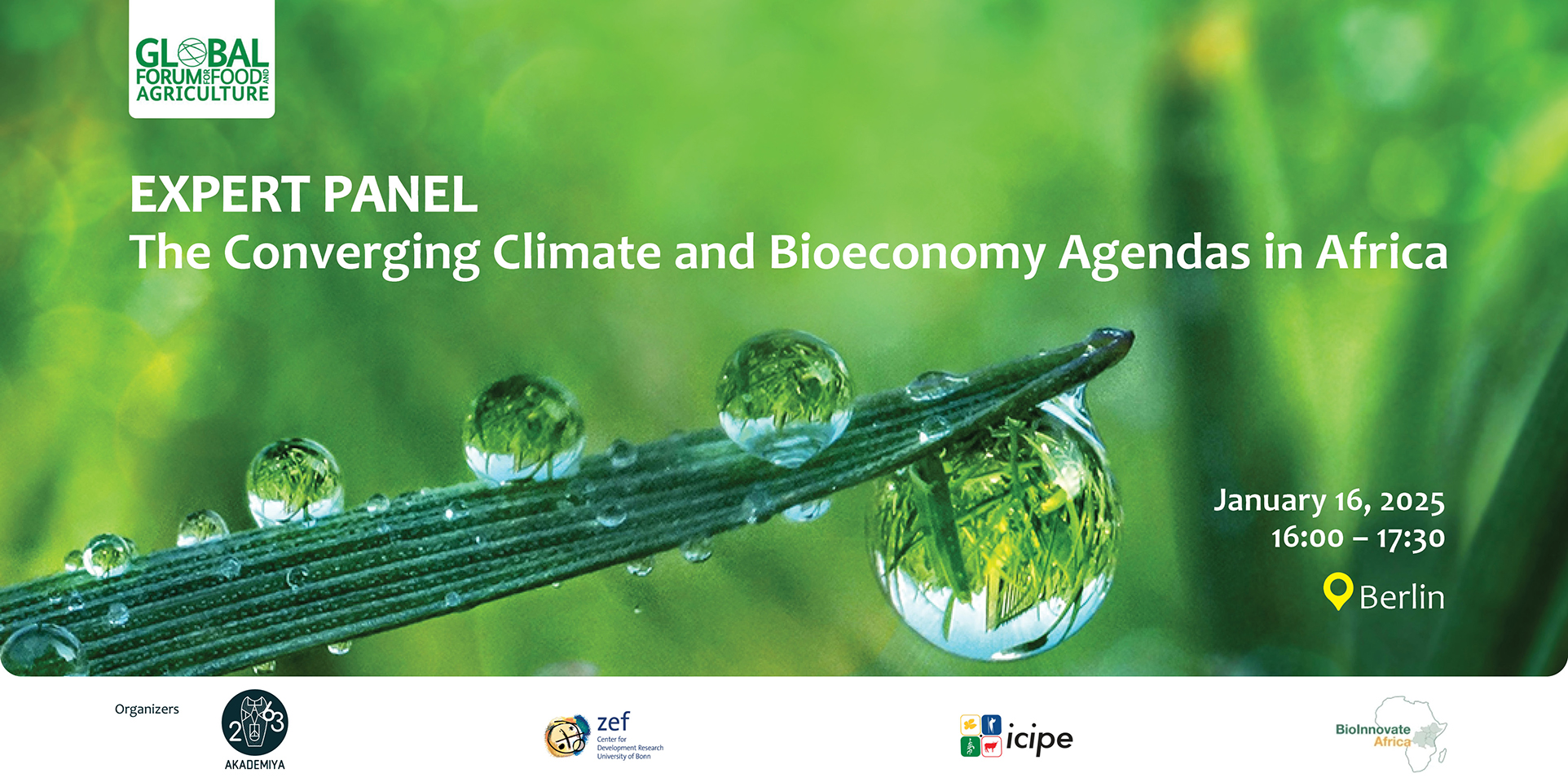The Converging Climate and Bioeconomy Agendas in Africa
Organizers: AKADEMIYA2063; The Center for Development Research (ZEF), University of Bonn; International Centre of Insect Physiology and Ecology (ICIPE)/BioInnovate Africa.
As Africa continues to face the brunt of the climate crisis, innovations in developing a sustainable bioeconomy on the continent offer real opportunities to address multiple challenges simultaneously. The bioeconomy is set to play a crucial role in fostering sustainable development by utilizing biological resources, such as plants, animals, and microorganisms, to produce food, energy, and materials. The bioeconomy promotes the shift away from fossil fuel dependency, helping to mitigate climate change while supporting biodiversity and ecosystems and enhancing communities’ ability to adapt and build resilience. By harnessing innovations in biotechnology and circular economy principles, the bioeconomy also creates new industries and jobs, fostering economic growth.
The recently released 2024 edition of the Annual Trends and Outlook Report (ATOR) explores the challenges that the climate crisis poses for agrifood systems and the opportunities offered by a transition to a bioeconomy to mitigate and adapt to the adverse impacts of climate change.
The ongoing efforts to equip Africa with a new 10-year CAADP Strategy (2026–2035) to implement the Post-Malabo Agenda present an opportune moment for African leaders to align the CAADP goals and ambitions with emerging initiatives such as the implementation of countries’ UNFSS national pathways, revision of NDCs in 2025, the Global Bioeconomy Summit held in October 2024, hosted for the first time in Africa, and Brazil’s G20 Bioeconomy Initiative.
Organized under the framework of GFFA 2025 in Berlin, the expert session will focus on four thematic issues, including climate change and its impact on agrifood systems, the link between bioeconomy and nutrition, climate change and bioeconomy financing, and strategy formulation and implementation.

